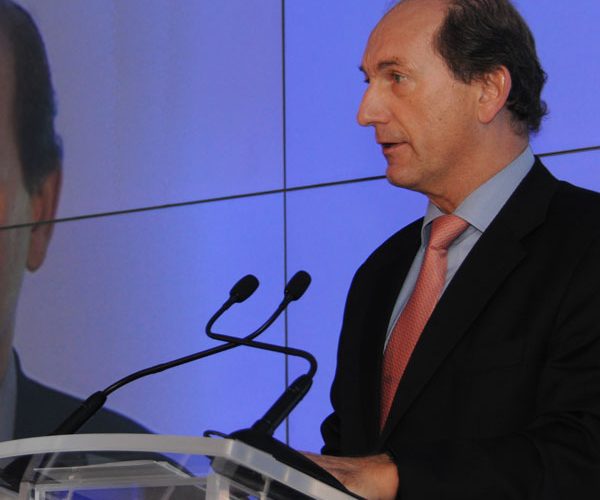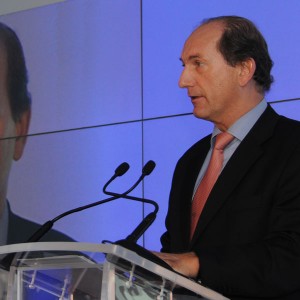Nestlé CEO urges for water to be given more value
- Like
- Digg
- Del
- Tumblr
- VKontakte
- Buffer
- Love This
- Odnoklassniki
- Meneame
- Blogger
- Amazon
- Yahoo Mail
- Gmail
- AOL
- Newsvine
- HackerNews
- Evernote
- MySpace
- Mail.ru
- Viadeo
- Line
- Comments
- Yummly
- SMS
- Viber
- Telegram
- Subscribe
- Skype
- Facebook Messenger
- Kakao
- LiveJournal
- Yammer
- Edgar
- Fintel
- Mix
- Instapaper
- Copy Link
Posted: 30 August 2012 | Nestlé | No comments yet
Nestlé’s Chief Executive Officer Paul Bulcke has urged for water to be given more value to avert a global food crisis…


Paul Bulcke, Nestlé CEO
Nestlé’s Chief Executive Officer Paul Bulcke has urged for water to be given more value to avert a global food crisis.


Paul Bulcke, Nestlé CEO
Speaking at the annual World Water Week event in Stockholm, Sweden, Mr Bulcke cited water scarcity as one of the main reasons for increased tension between food supply and demand.
He called for governments to take the lead in devising credible, cost-effective strategies to address water shortages while stressing that business, civil society and other stakeholders must be prepared to take greater responsibility for the problem.
Most useful resource
“If something isn’t given a value, people tend to waste it,” said Mr Bulcke. “Water is our most useful resource, but those using it often don’t even cover the costs of its infrastructure.
“Fresh water is being massively overused at nature’s expense, but it seems only a global crisis will make us realise the importance of the issue.
“What is environmentally unsustainable today will become socially unsustainable in the future,” he warned.
Food for billions
Mr Bulcke was participating in a World Water Week seminar as one of a panel of laureates of the prestigious Stockholm Water Prize, which Nestlé received in 2011.
The seminar, attended by His Majesty King Carl XVI Gustaf of Sweden, examined how agriculture can increase food production with limited water resources to meet rising global demand.
Mr Bulcke used examples from Nestlé’s own activities to illustrate the role business can play in helping farmers to use water more sustainably.
He highlighted research the company has done to improve the drought tolerance of coffee plants, as well as its work with the International Water Management Institute to help dairy farmers in Asia reduce their water withdrawals.
Huge potential
“Putting pressure on farmers to use water more efficiently is not, in my view, the right thing,” Mr Bulcke continued. “We must convince and help them to adopt more sustainable practices.
“Plants only need about 40-50% of the actual amount of water withdrawn for agriculture today, so there still huge potential to make savings.”
He went on to describe how Nestlé has managed to saved water in other areas, such as by reducing fresh milk losses in its dairy supply chain and installing effective waste water treatment systems in its factories worldwide.
Global water issues
Nestlé has participated in World Water Week for the past five years.
Organised by the Stockholm International Water Institute, the conference is usually attended by politicians, industry leaders, non-governmental organisations (NGOs) and researchers from more than 100 countries.
Mr Bulcke’s speech at this year’s event reiterated comments he made in June at a meeting of the ‘Task Force on Food Security’ at the G20 summit in Mexico.
He had joined other industry leaders and NGO representatives to set out actions to increase agricultural production and productivity by 50% by 2030, including ways to improve water availability.




